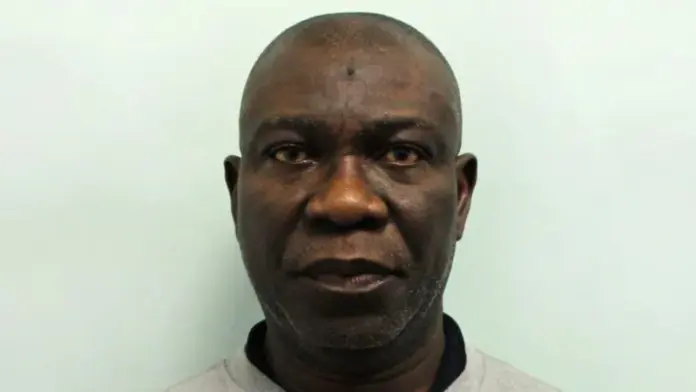The United Kingdom has rejected a request by the Nigerian government to allow the former Deputy President of the Senate, Ike Ekweremadu, to return home and complete his prison sentence in Nigeria. Ekweremadu, who represented Enugu West in the Senate for many years and served as a strong political ally of former President Goodluck Jonathan, is currently serving a jail term in the UK for organ trafficking.
Ekweremadu, 63, was sentenced in 2023 to nine years and eight months in prison after a UK court found him guilty of conspiring to exploit a young man for his kidney. The case, which shocked many Nigerians and attracted global attention, became the first conviction for organ trafficking under the United Kingdom’s Modern Slavery Act. His wife, Beatrice, and a medical doctor, Obinna Obeta, were also convicted for their roles in the scheme.
Last week, a Nigerian government delegation led by the Minister of Foreign Affairs, Yusuf Tuggar, visited the British Ministry of Justice to discuss Ekweremadu’s situation. According to reports, the Nigerian officials asked the UK government to approve the deportation of Ekweremadu so he could serve the rest of his sentence in Nigeria. This type of transfer is usually possible when both countries agree and when certain conditions are met.
However, a source in the UK Ministry of Justice confirmed that the request was turned down. The source explained that the British government was not convinced that Nigeria could guarantee that Ekweremadu would continue his prison sentence once he arrived in the country. British officials were said to have expressed concern that he might be released early or not serve the remainder of his sentence at all.
A spokesperson for the UK government declined to comment directly on Ekweremadu’s case, saying that the government does not discuss individual prisoners publicly. But the spokesperson emphasized that prisoner transfers are approved only when they are considered to be in the interest of justice.
Another UK government source added: “The UK will not tolerate modern slavery and any offender will face the full force of UK law.”
The case against Ekweremadu began in 2022 when a young Nigerian man raised an alarm in London, claiming he had been trafficked for the purpose of harvesting his kidney. According to court documents, Ekweremadu, his wife Beatrice, and Dr Obinna Obeta had arranged to bring the man to the UK on the pretext of offering him work. In reality, they intended for him to donate his kidney to the Ekweremadus’ daughter, Sonia, who suffers from a serious kidney condition.
The planned transplant was to take place at a private unit of an NHS hospital. However, medical staff became suspicious when it appeared the young man had not been properly informed about the medical procedure. Their concerns eventually led to police involvement and a full investigation.
During their trial, the prosecution argued that the young man was vulnerable and that the defendants tried to exploit his poverty and lack of education. In his sentencing remarks, Justice Jeremy Johnson described the scheme as a “despicable trade” and said the harvesting of human organs was a form of slavery.
“It treats human beings and their bodies as commodities to be bought and sold,” the judge said.
The judge also stated that Ekweremadu, due to his political influence, was the “driving force” behind the illegal plan. He noted that the case represented a “very substantial fall from grace” for a man who once occupied one of the highest positions in Nigeria’s legislative arm of government.
Beatrice Ekweremadu was sentenced to four years and six months in prison, with half of the sentence to be served in custody. She was released earlier this year after completing the required period and has since returned to Nigeria. Dr Obeta is still serving his sentence in the UK.
Ekweremadu’s daughter, Sonia, who was meant to receive the kidney, was not charged in the case. Her medical condition had generated sympathy from some Nigerians, but it did not change the legal outcome for her parents.
Since his conviction, several Nigerian groups, political allies, and individuals have appealed to the UK government to show leniency, describing Ekweremadu as a long-serving public official who deserved compassion. Some also argued that he should be allowed to serve the remainder of his sentence in Nigeria, closer to his family.
The Nigerian government’s latest attempt to secure Ekweremadu’s return appears to have been part of a wider diplomatic engagement. While details of the meeting between Minister Tuggar and the UK officials were not published, sources say the Nigerian delegation cited humanitarian reasons and the long-standing relationship between the two countries.
However, the UK government’s refusal suggests that it is placing strong highlight on the seriousness of the offence and its broader policy of cracking down on modern slavery, human trafficking, and exploitation.
The Modern Slavery Act, under which Ekweremadu was convicted, is one of the strongest anti-trafficking laws in the world. It gives British courts wide powers to punish offenders and protect vulnerable victims. The UK government has repeatedly stated that it will not compromise on cases involving organ trafficking or exploitation, regardless of the offender’s status or nationality.
The rejection has sparked mixed reactions among Nigerians. Some believe the UK’s stance is a signal that the country takes human trafficking and organ harvesting very seriously. Others see the decision as harsh, especially considering Ekweremadu’s service in public office and his contributions to Nigeria’s democracy.
With the UK refusing the transfer, Ekweremadu is expected to continue serving his sentence in a British prison until at least the second half of the decade, depending on parole considerations and UK prison rules. Nigeria may still pursue further diplomatic steps, but for now, the British position appears firm.

